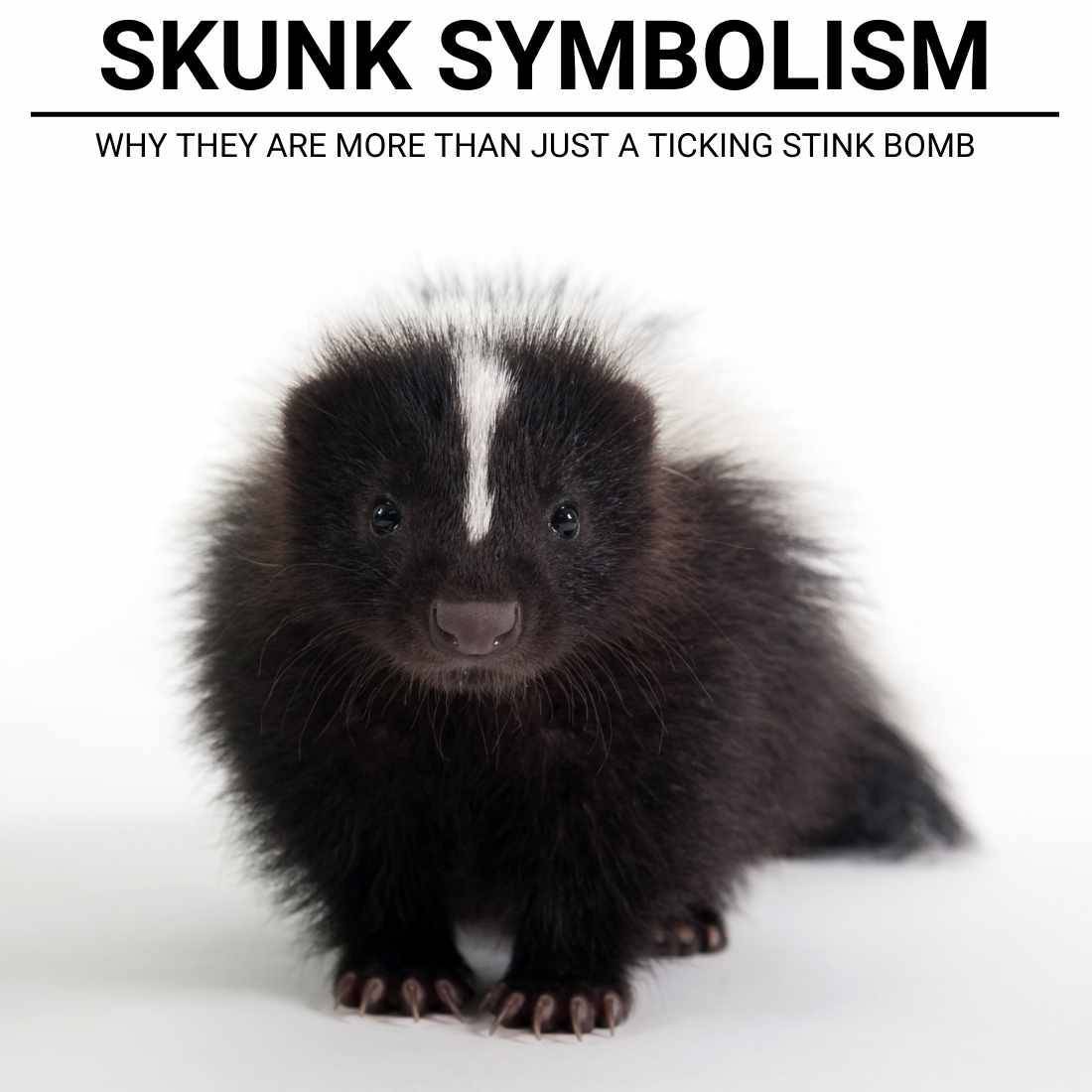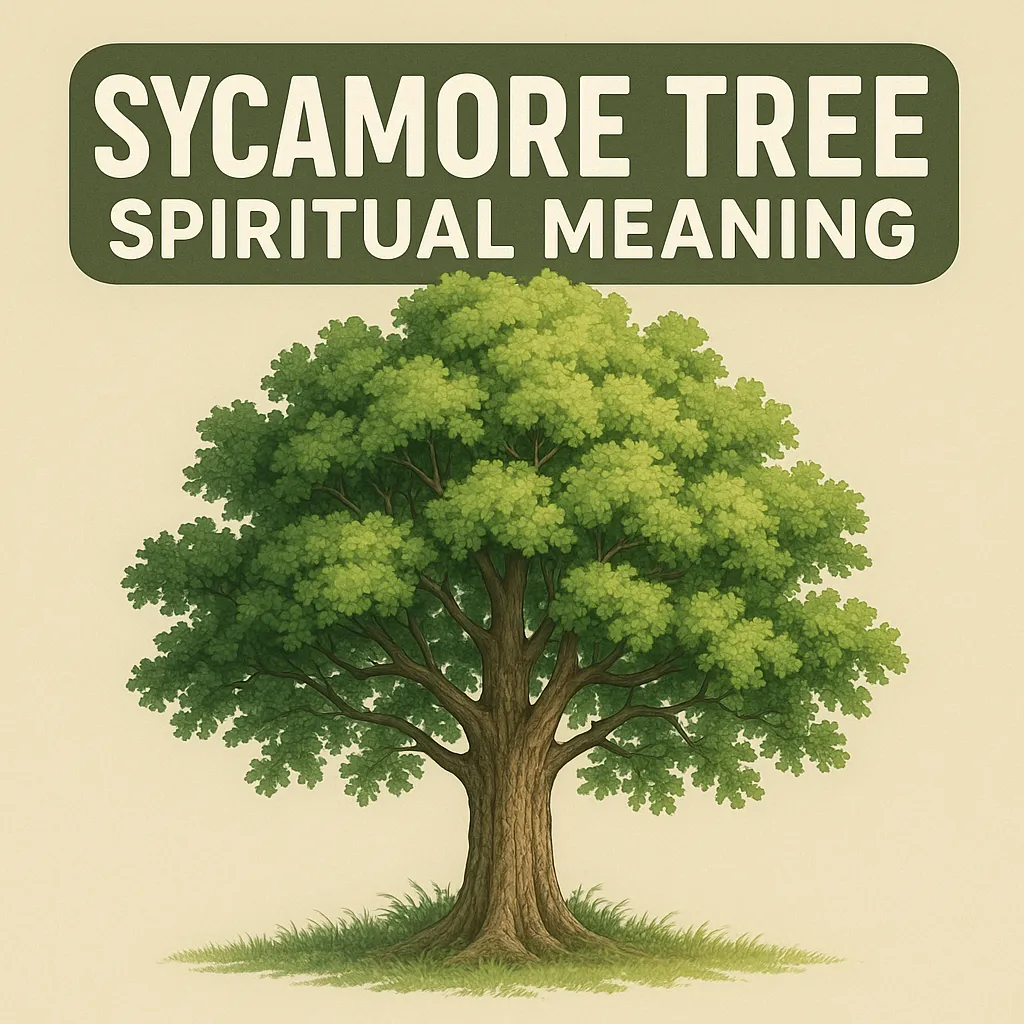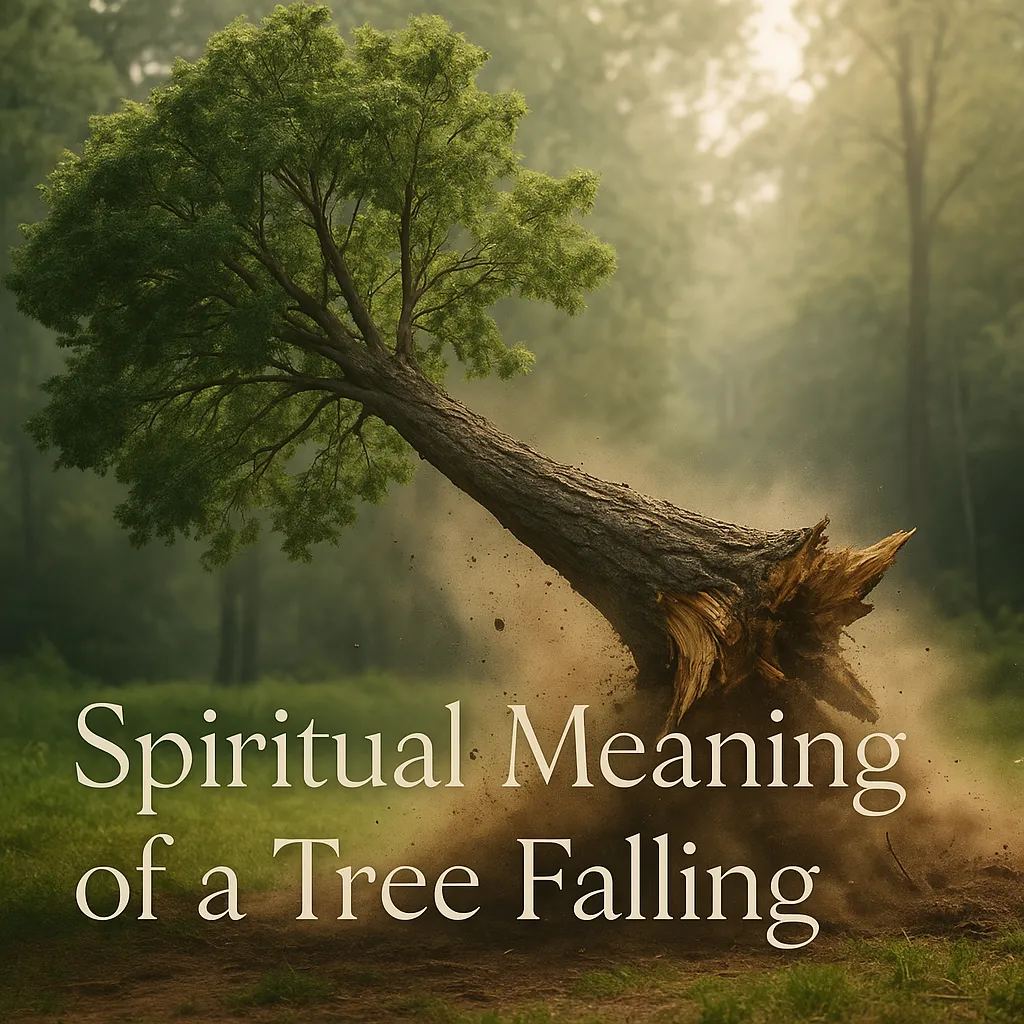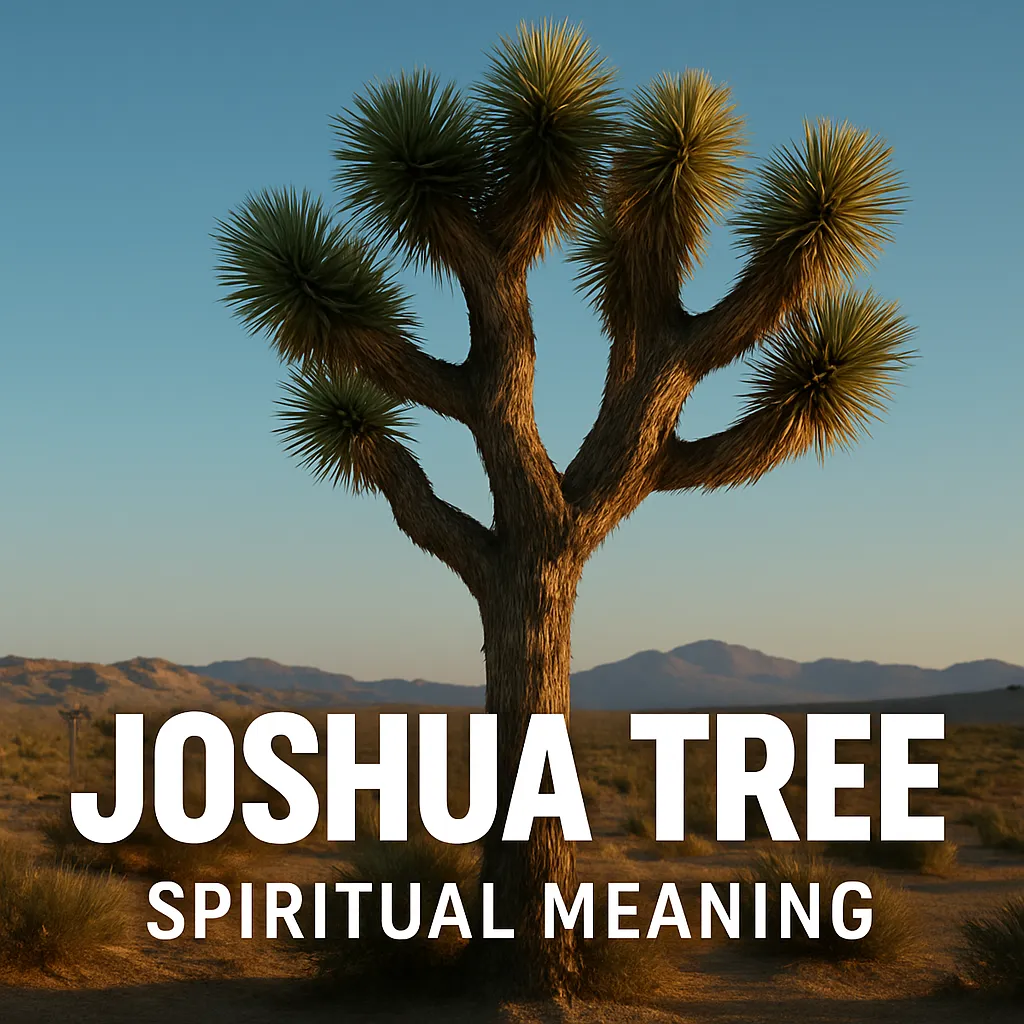|
Getting your Trinity Audio player ready...
|
Table of Contents
- 1 Key Takeaways
- 2 What does a skunk symbolize?
- 3 Skunk animal totem
- 4 Skunk in Historical and Cultural Contexts
- 5 Dreaming of Skunks: What Does It Mean?
- 6 The skunk in modern culture
- 7 Skunk Symbolism Across Spiritual Traditions and Modern Interpretations
- 8 Conclusion
- 9 FAQ
- 9.1 What does a skunk symbolize in dreams?
- 9.2 How do Native Americans view skunk symbolism?
- 9.3 What does it mean when a skunk crosses your path?
- 9.4 How can I connect with skunk energy for self-expression?
- 9.5 What is the spiritual significance of a skunk’s black and white coloring?
- 9.6 Can skunks be positive omens?
- 9.7 How does skunk medicine help with conflict resolution?
Key Takeaways
- Skunks symbolize protection and boundaries, teaching us the value of standing our ground while only using defensive measures when truly necessary.
- As animal totems, skunks represent resilience and courage, guiding us to overcome challenges and navigate through life’s uncertainties with confidence.
- Native American cultures revere skunks as sacred animals, viewing them as powerful symbols of wisdom, protection, and strategic thinking.
- Dreams featuring skunks often reveal hidden anxieties and encourage us to confront uncomfortable situations rather than avoiding them.
- Beyond their defensive spray, skunks embody the importance of uniqueness and self-expression, inspiring us to embrace our individual talents and stand out from the crowd.
Have you ever crossed paths with a skunk and wondered about its deeper significance? Skunk symbolism, rooted in ancient cultures, carries a tapestry of meanings, from strength to mystery. While many associate skunks with their pungent defense mechanism, these creatures are revered symbols in various traditions. Dive in to uncover the rich tapestry of skunk symbolism and why this misunderstood animal might be more significant than you think.
What kills a skunk is the publicity it gives itself.
– Abraham Lincoln, 16th U.S. President
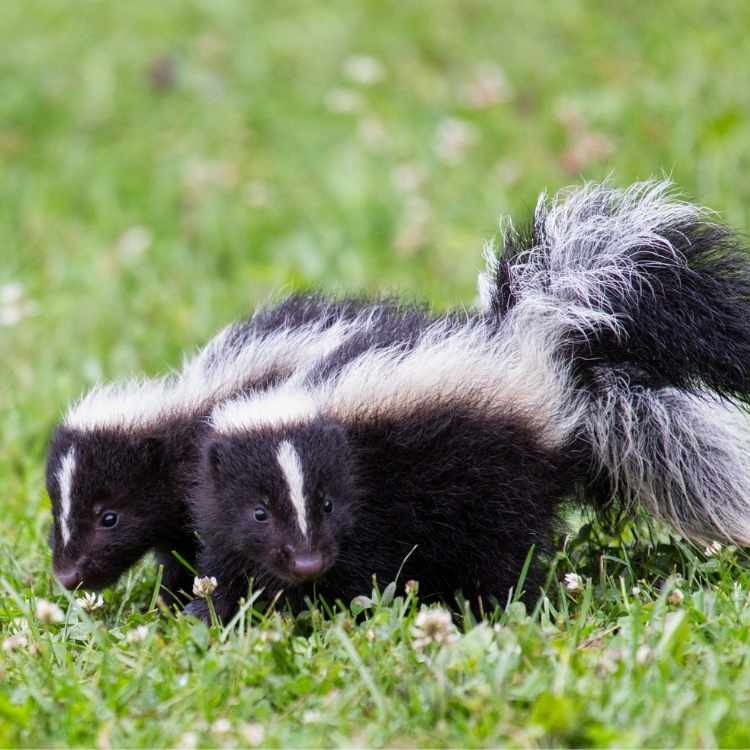
What does a skunk symbolize?
Known for the unmistakable odor that it uses to discourage nearby predators, the skunk is held in high esteem in a handful of cultures for the powerful messages that it features. Rarely making an appearance during the day, here’s what it means when you encounter these curious individuals along your way.
Out of the box reasoning
Arguably its most prominent feature, a skunk is known to spray a foul-smelling substance to scare away a potential threat. Scampering into our lives to awaken our creativity and freedom, these playful creatures encourage us to embrace our uniqueness and to use our one-of-a-kind talents to stand out from the rest.
Not only is this essential for our personal happiness, but it also helps enhance our self-worth, causing our spirits to soar and our insecurities to plummet.
Thinking on your feet
While its spray can be fatal for our noses, the skunk’s lethal protective feature is not limitless. Taking about a week to replenish, the appearance of these generally shy animals signifies our need to reasonably use our reserves and to use our assets only for our best interests.
Serving as our guide towards resourcefulness, they enable us to adapt to different situations and to make the best out of the skills that we were given.
Act only in self-defense
Noted for being highly flammable, the skunk’s spray is meant to give these fun-loving individuals enough time to scamper away from danger. Darting into our presence to tell us that avoiding trouble is not always a sign of weakness, they enlighten us about the peaceful and non-violent ways that we can put in place to keep our loved ones and ourselves safe.
While some would say that being defensive has its adverse effects, being cautious and constantly finding ways to stay a step ahead of others is a tried and tested approach that often leads to success.
Getting a hold of yourself
Peaceful and protective by nature, skunks would only show their grit and force during a hunt. Regarded as an opportunistic predator, they would rather feast on the leftovers of other animals than snag its usual diet of snakes, toads, and mice.
As an animal that fights back only as its last resort, they show us how a warm and peaceful heart allows you to lead a more cheerful and laid-back life.
Skunk Behavior Interpretations
| Skunk Behavior | Scientific Reasoning | Spiritual Message |
|---|---|---|
| Nocturnal Activity | Skunks are crepuscular, active during dawn and dusk to avoid predators. | Delving into life’s mysteries and the unknown. |
| Spraying a Foul Odor | A defense mechanism to deter predators and threats. | Setting boundaries and protecting oneself. |
| Striped Appearance | Camouflage and warning sign to potential predators. | Balance between opposing forces; duality of life. |
| Solitary Nature | Skunks are generally solitary to reduce competition for food. | The importance of introspection and self-reliance. |
| Foraging and Diet | Omnivorous diet helps them adapt to various environments. | Adaptability and making the most of available resources. |
| Mating and Motherhood | Mothers are protective and nurture their young intensely. | The sacredness of creation and maternal instincts. |
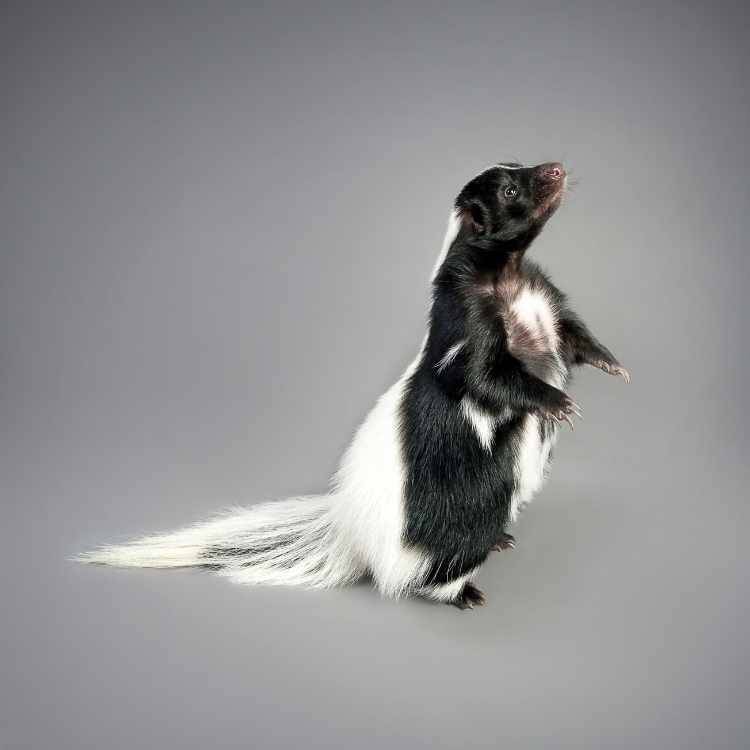
Skunk animal totem
Skunks, often misunderstood, hold significant symbolism in various cultures. Their unique behaviors and characteristics offer profound insights into life’s challenges and our innate strengths.
Shadow Associations
Typically associated with the shadows, skunks have long been symbols of fear, life’s mysteries, and the occult in many traditions. Their nocturnal habits and elusive nature have made them emblematic of the unknown and the mysterious.
Totem of Resilience
Having a skunk as your totem animal signifies overcoming challenges and emerging stronger from periods of hardship. It’s a reminder that even in the face of adversity, we possess the strength and tenacity to persevere and thrive.
Vision in Darkness
Skunks, with their exceptional night vision, serve as a metaphor for our ability to find clarity even in confusing or challenging situations. Their keen eyesight in the dark guides us to recognize and confront lurking dangers, urging us to trust our instincts.
Courage and Diligence
Skunks inspire us to act courageously in the face of risks. Their behavior emphasizes the importance of diligence, restraint, and endurance. Even when threatened, they choose their battles wisely, teaching us the value of strategic action.
Preference for Trusted Company
Known for their reserved and cautious nature, the skunk totem reflects our inclination to spend time with those we trust and respect. It’s a testament to the value of genuine relationships and the safety found in trusted companionship.
Symbol of Protection
With their unique defense mechanism of spraying only when sensing danger, skunks symbolize discernment and protection. Their ability to ward off potential threats with a potent defense reminds us of the protective measures we can take in our own lives.
Bearer of Good Fortune
Many believe that having the skunk totem in one’s life brings about protection, balance, and good fortune. Beyond their defensive capabilities, skunks are seen as harbingers of luck, guiding individuals towards positive outcomes and blessings.
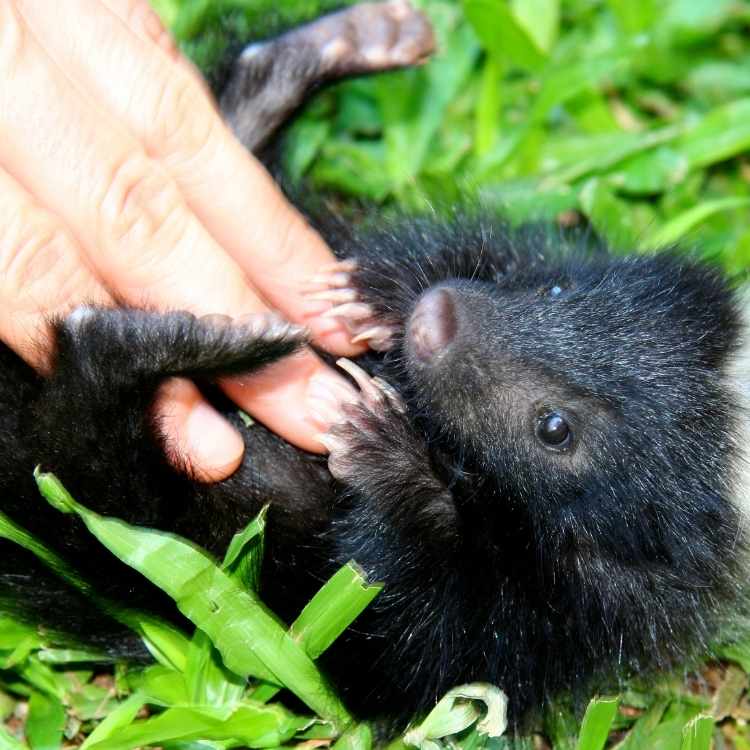
Skunk in Historical and Cultural Contexts
Skunks, often seen as mere nocturnal creatures with a pungent defense mechanism, have deep-rooted symbolic meanings across various cultures. Their presence in historical tales and myths provides a rich tapestry of interpretations that span continents and eras.
Ancient Egyptian Beliefs
In the heart of the Nile Valley, the Ancient Egyptians held a nuanced view of skunks. While not as commonly depicted as cats or crocodiles, skunks were associated with death and resurrection.
Their nocturnal nature and ability to emerge from the shadows symbolized the cycle of life, death, and rebirth. Moreover, their potent defense mechanism was seen as a form of protection, warding off evil spirits and potential harm.
Ancient Greek Associations
The Ancient Greeks, with their pantheon of gods and intricate mythologies, saw skunks in a slightly different light. Their elusive nature made them symbolic of the afterlife and the mysteries that lie beyond the realm of the living.
Skunks, in Greek tales, often served as guides, leading souls to the underworld and ensuring they found their way. Their presence in these tales emphasized the importance of guidance and the journey of the soul after death.
Native American Mythology
Across the Atlantic, in the vast landscapes of North America, Native American tribes held skunks in high regard. Revered for their unique characteristics, skunks symbolized both protection and mischief.
While their spray was seen as a protective force against threats, skunks also played the role of tricksters in many tribal tales. These stories often highlighted the skunk’s cunning nature, teaching lessons about wit, strategy, and the unpredictable nature of life.
Skunks are also sacred animals to many Native American tribes. They are seen as symbols of protection, strength, and wisdom. The skunk’s ability to spray its scent is seen as a powerful form of protection.
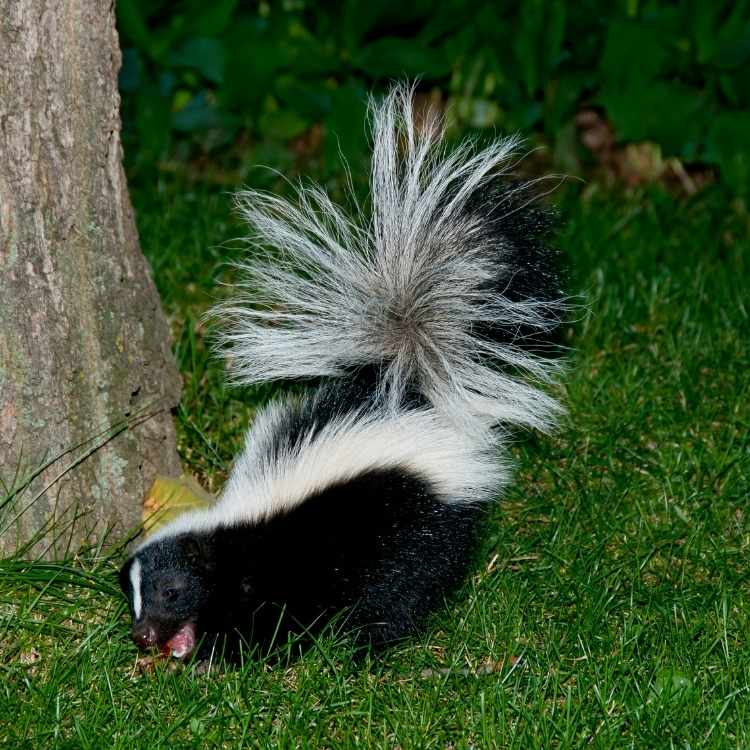
Dreaming of Skunks: What Does It Mean?
Dreams, those elusive narratives of our subconscious, often carry profound meanings. When a skunk makes an appearance in your nocturnal visions, it’s essential to delve deep into its symbolism to understand the message your mind is conveying.
General Skunk Symbolism in Dreams
In the realm of dreams, a skunk often embodies feelings of fear, danger, and disgust. Its appearance might indicate underlying anxieties or concerns that you’ve been avoiding in your waking life. Perhaps there’s a situation or relationship that’s been bothering you, and the skunk’s presence is a nudge to confront these feelings.
Variations and Their Meanings
Different types of skunks in dreams carry varied interpretations:
- A black skunk might symbolize hidden threats or unknown fears.
- Encountering a white skunk could indicate purity, a fresh start, or a new perspective on an old issue.
- A baby skunk often represents nascent problems or concerns that are just beginning to surface.
- Seeing a dead skunk can be a sign of overcoming challenges or putting an end to a particular issue that’s been plaguing you.
Addressing and Overcoming Fears
Dreams of skunks, while initially unsettling, are often calls to action. They urge us to face our fears, address pressing issues, and seek resolution. By understanding the symbolism of these nocturnal visitors, we can harness their messages to bring clarity, understanding, and healing to our waking lives.
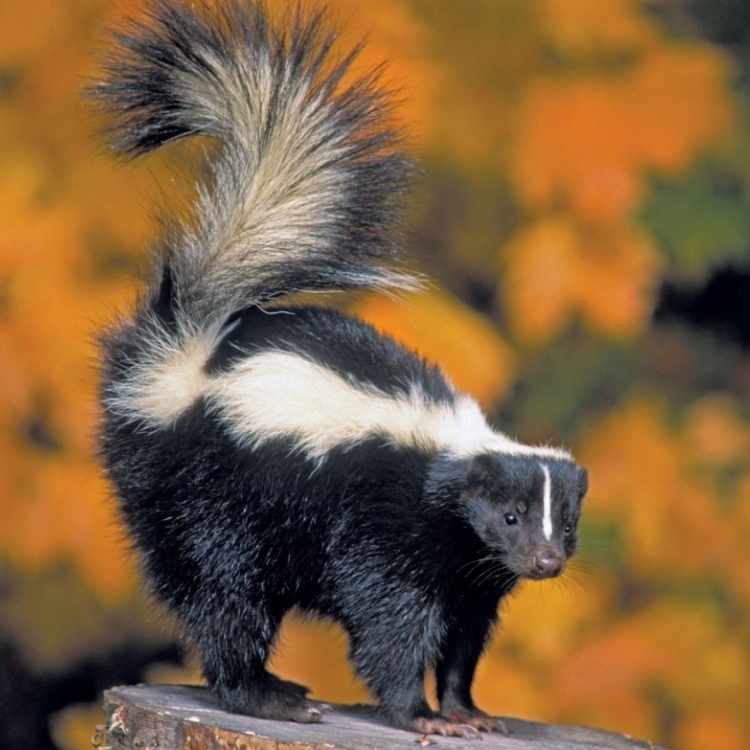
The skunk in modern culture
Skunks are often seen as pests in modern culture. They are known for their foul odor and their habit of digging up gardens. However, skunks can also be seen as symbols of resilience and determination. They are survivors in a world that often doesn’t understand them.
List of the top 10 most famous skunks in arts, culture, music, and movies
- Pepé Le Pew: This is a cartoon skunk who is known for his amorous advances and his distinctive scent. Pepe Le Pew is a symbol of love, albeit unwanted and often misguided. [Link to Pepe Le Pew cartoon]
- Stinky Pete: This is a toy skunk who appears in the movie Toy Story 2. Stinky Pete is a greedy and selfish toy who is determined to stay in his box. Stinky Pete is a symbol of greed and selfishness. [Link to Stinky Pete character in Toy Story 2]
- The Skunk from Bambi: This is a skunk who appears in the movie Bambi. The Skunk is a wise and gentle creature who helps Bambi to learn about the dangers of the forest. The Skunk is a symbol of wisdom and guidance. [Link to The Skunk from Bambi]
- Ralph Wiggum: This is a character from the Simpsons who is known for his stupidity and his love of skunk spray. Ralph Wiggum is a symbol of innocence and naivety. [Link to Ralph Wiggum character from The Simpsons]
- The Skunk from The Secret Life of Pets: This is a skunk who appears in the movie The Secret Life of Pets. The Skunk is a loyal and loving pet who is always there for his owner, Max. The Skunk is a symbol of loyalty and love. [Link to The Skunk from The Secret Life of Pets]
Other famous skunks in arts, culture, music, and movies include:
- The Skunk from The Aristocats: This is a skunk who is part of a family of alley cats. The Skunk is a kind and gentle creature who is always there for his friends.
- The Skunk from Over the Hedge: This is a skunk who is part of a group of animals who live in the suburbs. The Skunk is a wise and resourceful creature who helps the other animals to survive in their new environment.
- The Skunk from The Cat in the Hat: This is a skunk who is one of the Cat’s friends. The Skunk is a fun-loving and mischievous creature who helps the Cat to cause all sorts of trouble.
Skunks are often seen as symbols of love, wisdom, guidance, innocence, and naivety. They are also sometimes seen as symbols of danger and fear, due to their ability to spray a foul-smelling liquid.
Skunk Symbolism Across Spiritual Traditions and Modern Interpretations
Skunk as a Spirit Animal Guide
When the skunk appears as your spirit animal, it carries profound spiritual meaning beyond its distinctive defense mechanism. As a spirit guide, the skunk teaches us about respect and maintaining healthy boundaries in our relationships. Those who connect with skunk energy often develop a natural ability to command respect without aggression—much like how the skunk’s distinctive black and white markings serve as a warning that demands acknowledgment without confrontation. This spirit animal reminds us that true power lies not in attacking others but in standing firm in our personal truth and defending our space when necessary.
The Spiritual Meaning of a Skunk Encounter
Encountering a skunk in nature or in dreams typically isn’t coincidental from a spiritual perspective. Such meetings often signal that you’re entering a period where self-protection and authentic self-expression will be crucial. The skunk’s spiritual meaning reminds us to honor our intuition—if something feels threatening, it’s likely time to establish clearer boundaries. Many spiritual traditions view unexpected skunk sightings as gentle warnings to be more discerning about the energy and people you allow into your sacred space. The skunk teaches that sometimes the most powerful spiritual stance is knowing when to create distance from toxic influences.
What Does It Mean When You Keep Seeing Skunks?
Repeated skunk sightings carry special significance in spiritual practice. If you’re continually crossing paths with these distinctive creatures, the universe may be highlighting areas of your life where you’ve been allowing personal boundary violations. In many esoteric traditions, recurring skunk encounters suggest you need to examine where you might be compromising your values or tolerating disrespect. These persistent messages from the natural world remind us that our energy is precious—we should protect it as effectively as the skunk protects itself. Consider keeping a journal of these encounters to identify patterns and reflect on which relationships or situations in your life might benefit from more clearly defined boundaries.
Understanding skunk symbolism across various traditions enriches our appreciation for these misunderstood creatures. Whether appearing as spirit animals, dream messengers, or unexpected visitors on our path, skunks remind us that self-protection is not only natural but necessary for spiritual growth. Their distinctive appearance and protective capabilities serve as powerful metaphors for living authentically in a world that sometimes feels threatening to our true nature.
Conclusion
Seen by many as an animal to keep your distance from, the skunk embodies how being confident about ourselves can lead to gaining people’s respect and admiration. While they are probably more popular for the stench they produce than their endearing features and messages, these relatively good-natured creatures motivate us to remain positive and face our challenges with confidence.
And, with a defense mechanism that eliminates the purpose of taking a bath for 14-21 days, the skunk and its symbolism invite others to either stay on your good side or simply stay away.
FAQ
What does a skunk symbolize in dreams?
In dreams, skunks often represent unresolved conflicts or situations you’re avoiding. They may suggest it’s time to address an uncomfortable truth rather than continue evading it. Pay attention to the skunk’s behavior in your dream—whether defensive or peaceful—for additional insights.
How do Native Americans view skunk symbolism?
Many Native American traditions hold skunks in high regard as medicine animals symbolizing self-defense and respect. Some tribes consider the skunk a teacher of strategic thinking—using power judiciously and only when necessary. Their distinctive appearance represents balance between assertiveness and restraint.
What does it mean when a skunk crosses your path?
A skunk crossing your path often serves as a spiritual reminder to evaluate your personal boundaries. This encounter suggests you may need to assert yourself more effectively in certain relationships or situations while maintaining your composure and dignity.
How can I connect with skunk energy for self-expression?
To connect with skunk energy, practice standing firmly in your truth without aggression. Meditate on the skunk’s confident nature and distinctive appearance. Journal about areas where you need stronger boundaries, and consciously work toward expressing yourself authentically without fear of judgment.
What is the spiritual significance of a skunk’s black and white coloring?
The skunk’s striking black and white pattern represents duality and balance in spiritual contexts. This coloration symbolizes the integration of opposing forces—light and dark, action and restraint, visibility and mystery. It teaches us to embrace contrasts within ourselves while remaining unmistakably authentic.
Can skunks be positive omens?
Yes, skunks can be positive omens indicating you’re developing healthy boundaries and self-respect. Their appearance may signal you’re entering a period of greater authenticity and personal power. Many spiritual traditions view skunk encounters as confirmations you’re on the right path toward self-empowerment.
How does skunk medicine help with conflict resolution?
Skunk medicine teaches the art of peaceful conflict resolution through clear communication and established boundaries. It encourages addressing issues directly rather than allowing tensions to escalate. By embodying the skunk’s energy, you learn to defend your position with dignity while avoiding unnecessary confrontation.
